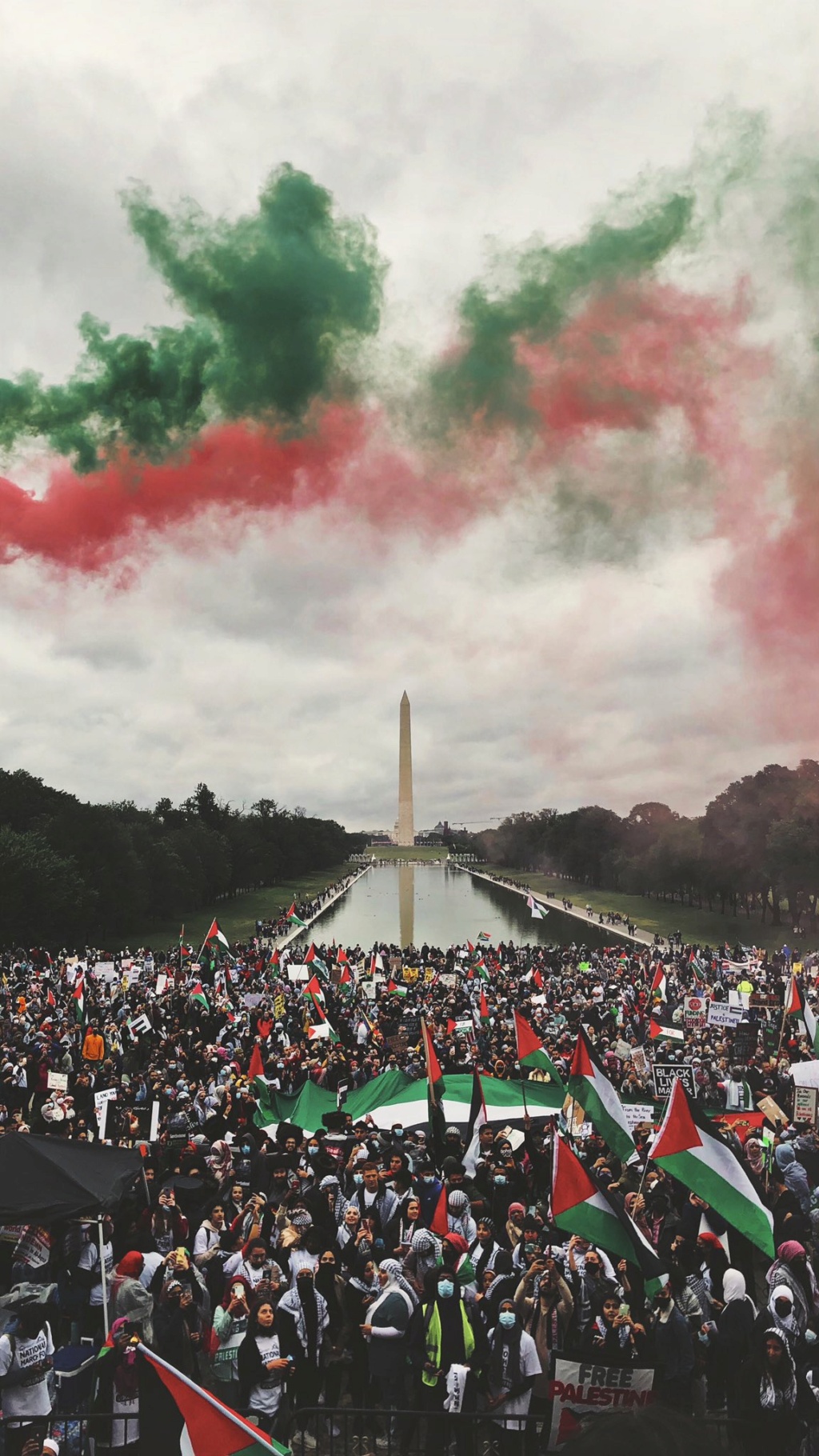Russia is outplaying the United States in Israel's war with the Palestinians
May 24, 2021
Analysts continue to take stock of the 11-day war between Israel and Palestine (culminated in a truce last week). Hamas has already stated that Israel has lost this battle and signed for its defeat. Is this really so - and why did the Russian policy in this conflict turn out to be advantageous?
At first glance, it seems that among the winners are Israel and its Prime Minister Benjamin Netanyahu. Israeli troops destroyed many Hamas militants and showed their strength.
In addition, none of the demands made by the Palestinians to Israel (except, of course, a ceasefire in the Gaza Strip) has been fulfilled. Israel will continue to "evict Arab families" from the Arab quarters of Jerusalem. Israel is unlikely to release all Arabs detained for organizing riots. Israel does not undertake any obligations to refuse to bring security forces into the Al-Aqsa mosque in the event of a repetition of the riots (in fact, after the end of the ceasefire, the police have already entered there - to disperse the next radicals).
Its own skin and state
However, in reality, everything is not so simple. Yes, Netanyahu won - not as a leader of the state, but as a politician. With tough actions against the Arabs, he increased his reputation, and also quarreled the political forces within the camp of opponents (who tried to gather under their banners the majority of the Knesset members and deprive Bibi of the post of prime minister). Some experts say that if Netanyahu is not able to assemble a coalition himself, then he will go to the next elections (the fifth in almost two years) with better chances of winning than before the 11-day war.
But as far as Israel is concerned, there is no sign of victory here.
First, the Israelis were convinced in practice that their dome was by no means iron. The Iron Dome air defense system was unable to intercept all or even a critical number of missiles that flew from Gaza to Israeli cities. In this case, we are talking about homemade products made on the knee. What will happen if missile salvos come not from the south, but from the north - from the Hezbollah movement, whose weapons are an order of magnitude better than that of Hamas, and can hit critical infrastructure of the Jewish state with much greater accuracy?
Secondly, the Israelis faced massive street riots not only in Jerusalem, but also in other cities with a significant presence of the Arab population - and could not cope with these riots. Moreover, at a number of points they were hindered by the Jews (some of whom acted no less radically than the Arabs). Simply put, the 11-day war has once again shown that the belief in Israel's power is somewhat exaggerated.
Not a step
But did the Palestinian movements in the person of Fatah, Hamas, and also Palestine itself win? Residents are sure that yes, and they still celebrate their victory in the war. However, in reality, everything is also not so simple - moreover, the situation is mirrored in Israel.
Fatah and Hamas did win - not as representatives of the Palestinians, but as political movements. Both led the resistance, both gained ratings.
Yes, while part of the Hamas leadership was knocked out by Israeli strikes, however, the losses will be made up, and the movement received a bonus in the form of Israel's refusal to storm the Gaza Strip. The militants can now say that Israel was simply afraid of them. Now Fatah and Hamas will share the status of the winner (which is important on the eve of the planned elections in Palestine).
However, Palestine itself has certainly lost. And it's not just more than two hundred civilians killed and homes destroyed in already poverty-stricken Gaza. The fact is that these losses turned out to be meaningless - as a result of the 11-day war, Palestine did not come close either to the creation of its own state, or to the acquisition of East Jerusalem, or to victory in the conflict with Israel. Nor, finally, to the creation of a normal civil society, whose members live for the future, and not at the expense of hatred of Jews and their dehumanization.
Defenders and Observers
As for external players, Iran and Turkey are undoubtedly on the list of winners. During the conflict, both countries actively supported the Palestinian side and thereby gained political points on the Arab street.
And not only on the street - for example, the Turkish Sultan Recep Erdogan is actively trying to get involved in the Palestinian-Israeli peace process (where neither Israel, nor the United States, nor Egypt are allowed) through various initiatives. The final chord was his proposal to create a new international mechanism for the protection of the Palestinian population - that is, to bring peacekeeping forces into Palestine. Probably Turkish.
As for Iran, while the local politicians capitalize on their image achievements in the domestic arena. In less than a month, presidential elections will be held in the country, and Iranian conservatives use the growth of anti-Israeli sentiment in society to raise their own rating. Experts believe that a new incarnation of Mahmoud Ahmadinejad with his radical foreign policy may come to power in the country. And they also say that the joint support of the Palestinians has brought Iran closer to Turkey (which now have serious disagreements over both Syria and the South Caucasus).
Russia, however, remained rather with its own people. In the Palestinian-Israeli issue, Moscow is pursuing a complex, but, in fact, the only effective tactics - that is, it does not go anywhere and does not make friends with one against the other. Russian officials maintain working relations with both the Palestinian side and the Israeli side. Tel Aviv is condemned for tough actions against Palestinians, and Hamas - for missile attacks on Israelis. At the same time, they do not position themselves as the main sponsors / friends / defenders of either one or the other. Offer mediation services - but do not insist on accepting them. They do not push either one or the other side into any concessions. In general, they just keep their finger on the pulse.
A number of experts consider this to be the most sensible policy for Moscow. The Israeli-Palestinian conflict is so intricate that it can become a real black hole for the human resources of a country that wants to delve into it and fish out something there. And this fishing is obligatory only for those countries for which Palestine is a vital interest or part of a sphere of influence (like for Turkey or for Iran, which are in the neighborhood). For Russia, Palestine is not the most important foreign policy front - now all the forces of domestic diplomacy are thrown into the protection of national interests in the post-Soviet space.
Undecided
Against the backdrop of the unequivocal, thoughtful and pragmatic positions of Iran, Turkey and Russia, the United States' approach looks somewhat confusing. Even a bit dead end.
Its general outlines were voiced by the US Secretary of State Anthony Blinken. Thus, he called the principle of "two states for two peoples" the only way to resolve the conflict. “This is the only way to secure the future of Israel as a Jewish and democratic state - and, of course, the only way to give the Palestinians a state to which they are entitled,” the diplomat explained. However, first of all, he did not explain how the States would force Palestinian Arabs with Israeli citizenship to move to live in Palestinian territory (and they do not want to move, knowing full well what the standard of living and competence of managers in the Palestinian state will be). Secondly, the States have not decided on the borders of the Arab state - if earlier they rested on the 1967 borders, then after Trump recognized Jerusalem as the capital of Israel (and Biden's refusal to withdraw this confession), this formula no longer works.
Blinken is also confident that here and now it is necessary to begin to fight "with the dire humanitarian situation in Gaza." However, how to fight? The sector controls Hamas (which the United States recognizes as terrorists), any supply of goods there not only falls into the hands of the militants, but also strengthens their political position in the region. At the same time, Washington cannot even get Hamas to recognize Israel's right to exist (and you can understand the militants here - in case of such recognition, they will lose the respect of the Palestinians and their main sponsors in the person of Iran).
In fact, America is trying to sit on two chairs in the Palestinian-Israeli question and at the same time not be hit with specifics.
However, the attempt to mirror the Russian position is not entirely successful because the United States is trying not only to have good relations with both sides, but to be their best friends. This means that the level of expectations of the parties from America is very high.
The Palestinians want money (and Biden is giving them several hundred million dollars to help refugees), the Israelis are demanding weapons (and receive up to $ 4 billion in military aid annually). As a result, both of them are unhappy with the Americans, since the weapons purchased with American funds are used to destroy Palestinian houses restored with American funds.
Of course, Anthony Blinken has a chance to clarify approaches - the head of the State Department is leaving for a visit to the Middle East. However, the principled position of the Biden administration on the issue of human rights (which Israel does not respect in Palestine) and the "red lines" set by the Jewish lobby are unlikely to allow the United States to determine, as Trump did in his time. This means that America will continue to watch how Turkey, Iran and Russia will raise their status due to their competent position in the Palestinian-Israeli conflict.
Text: Gevorg Mirzayan
https://m.vz.ru/world/2021/5/24/1100868.html



 Kiko
Kiko


